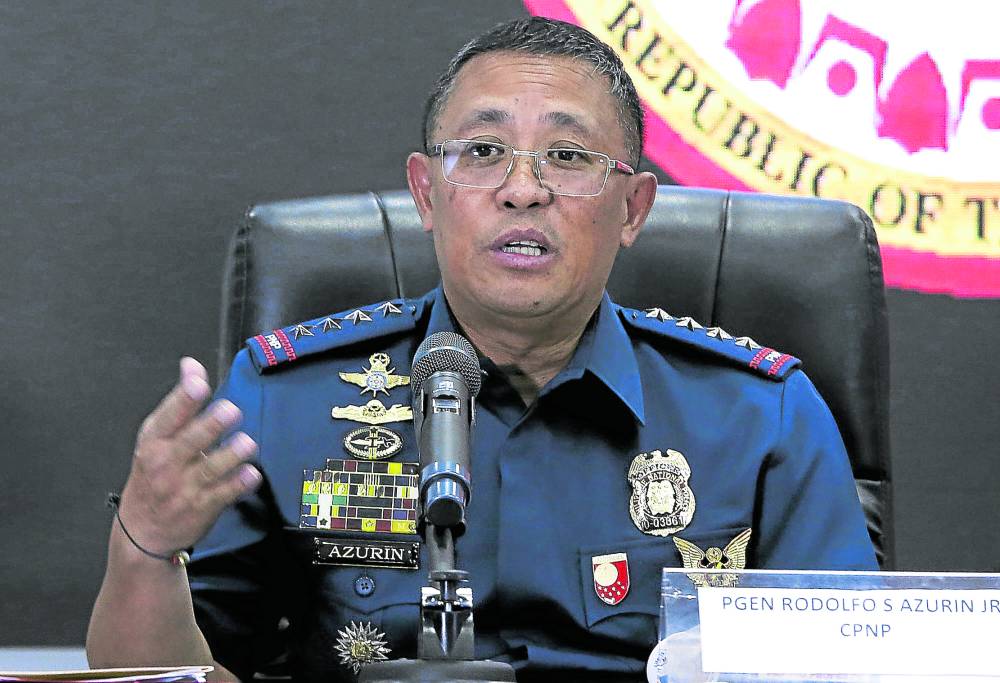By: Beting Laygo Dolor, Contributing Editor
He did not want to use the word ‘deported’ but the fact is clear. Former Philippine National Police (PNP) chief Rodolfo Azurin bought a ticket and landed at the Vancouver airport late last month but was not allowed entry to Canada, forcing him to fly back to Manila in the next available flight.
The first PNP chief of the Marcos administration said he had been “intercepted” at the airport and questioned by Immigration authorities. Thus, he was unable to visit his relatives, who are Canadian citizens, he said.
Azurin blames his brother-in-law, a still active senior officer of the national police, for his travails.
After his embarrassing experience, Azurin said he would “appreciate” a formal letter of apology from the Canadian embassy in Manila, which should also clarify the issues he has with Immigration officers in the north American country.
After denying reports he had been deported, Azurin issued a statement pinning the blame for his inability to enter Canada on his brother-in-law, PNP Deputy Chief for Administration Lt. Gen. Rodel Sermonia. Azurin said Sermonia was the source of disinformation that had been used by Canadian immigration authorities to refuse him entry.
Azurin and Sermonia’s wives are siblings. There is apparently a family issue between the two. Upon the former’s retirement earlier this year, the latter spoke glowingly of the latter’s accomplishments.
Sermonia, however, denied Azurin’s allegations. He said there was no reason to ruin the former PNP chief’s reputation considering that they were close relatives, at least by affinity.
Aside from their family ties, Sermonia said Azurin was also his “mistah,” who was in the same graduating class.
Sermonia said that “to ruin his name would also ruin my family’s name.”
But Azurin said he would ask current PNP Chief Benjamin Acorda to investigate Sermonia’s supposed role in the smear campaign against him.
Azurin said “maybe it was him (Sermonia) who tipped the Canadian Immigration by concocting half-truths and many lies and had been hoping that I will be deported. He has been sending messages about my deportation.”
As for the letter of apology from the Canadian embassy, Azurin said the Department of Foreign Affairs has already relayed the embassy’s verbal apology but he had not yet received the formal written apology.
He told local media: “I just don’t know if they will issue an official statement of apology to me and perhaps a formal letter will be much appreciated, recognizing that there was indeed a mistake committed by Canada Immigration in Vancouver.”
He added that as far as he was concerned, his visitor’s visa had not been cancelled.
Azurin, however, added that “there is an ongoing validation to determine if I can be admitted or if I can be allowed to enter Canada: to visit his relatives, who are Canadian citizens.”
The DFA’s sponsor in the House budget hearings explained what happened to the former PNP chief last week.
Rep. Joseph Violago said Azurin had indeed encountered issues but that the Canadian embassy had expressed regrets over the “misunderstanding and miscommunication.”
The DFA, he said, did not offer any assistance to Azurin as he was on a personal trip and had voluntarily returned to the Philippines without seeking help.
There was speculation that Azurin was denied entry into Canada because of his role as a senior PNP official during the Duterte administration’s brutal war on drugs.
He was appointed by President Bongbong Marcos as PNP chief last year but only served nine months before reaching the mandatory retirement age in April, this year.

































